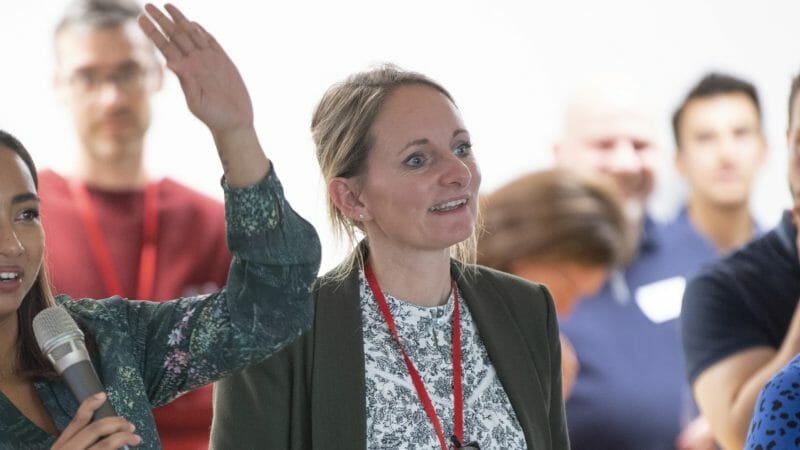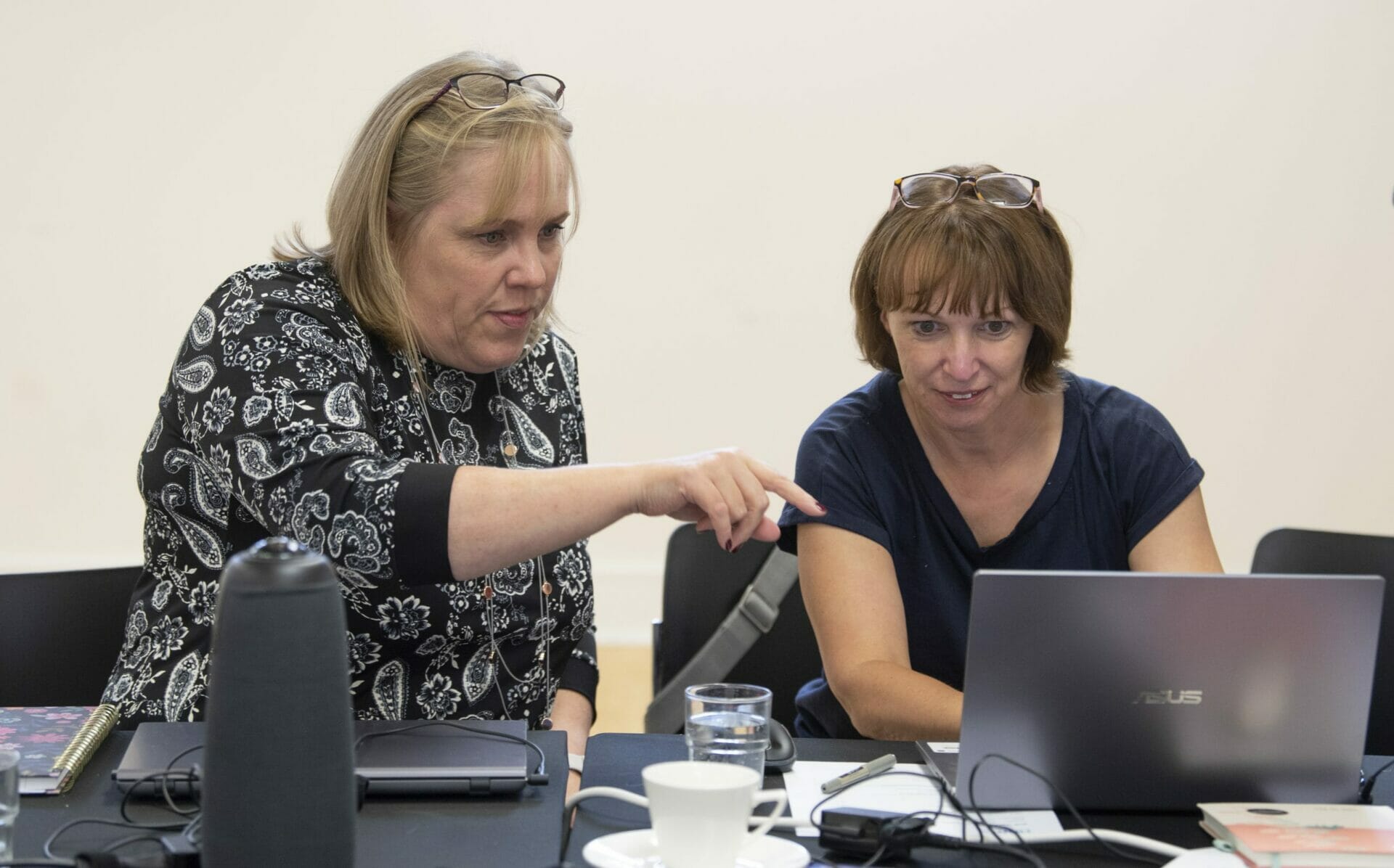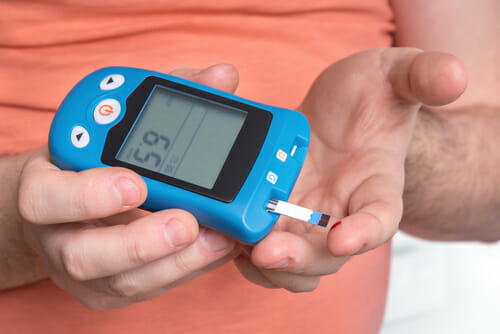Theme Lead: Professor Tim Chico
Advances in smartphone and wearable technology provide an unprecedented opportunity to improve our understanding of cardiovascular health. By securely linking wearable data with electronic health records, we’re working to build the infrastructure, collaborations, and data access mechanisms needed to generate richer, real-world insights that enhance prevention, diagnosis, and treatment of cardiovascular disease..
What we do
We’re helping researchers to access, use, and link smartphone and wearable data with health records in a secure, ethical, and scalable way. We’re working to:
- Establish robust data acquisition, linkage, and governance frameworks
- Engage with researchers, clinicians, and public contributors to ensure data use aligns with research priorities and patient expectations
- Develop trusted processes for secure and ethical data use
Key areas of work
Setting research priorities
To ensure this resource is fit for purpose, we consulted extensively with:
- UK and international researchers – to identify key research needs and use cases
- Healthcare professionals – to determine how smartphone and wearable data could support clinical practice
- Patients and public contributors – to build public trust and ensure ethical data use
Insights from these discussions informed our report and viewpoint article, which highlight:
- The need for large-scale, linked smartphone and wearable datasets for cardiovascular research
- Challenges such as data privacy, representativeness, and accessibility
- Opportunities for research to generate real-world impact
Identifying data with the highest potential to benefit cardiovascular research
We conducted two national surveys to identify:
- What data researchers and clinicians consider most valuable
- What data the public feels comfortable sharing for research
Key findings:
The most important smartphone and wearable data types for cardiovascular research include heart rate, heart rhythm, activity, and sleep.
Over 75% of the public expressed willingness to share these types of data for research.
Read the full report for more details.
This study was co-designed with public contributors, ensuring clear, accessible language and broad representation.
Developing a framework for secure data linkage
To support research-ready smartphone and wearable data linked to NHS records, we:
- Co-designed participant information and consent materials, now being used in studies at Sheffield University and UK CliC
- Adapted the RADAR-base platform (in collaboration with King’s College London and UCL) to support participant consent and NHS data linkage
These developments provide a foundation for future large-scale wearable data studies.
Building a national data resource
We are now working towards establishing a scalable, linked dataset that will allow researchers to:
- Conduct longitudinal analyses of cardiovascular health using real-world smartphone and wearable data
- Investigate disease trajectories, early warning signs, and intervention effectiveness
- Explore how insights from smartphones and wearables can complement clinical data to improve patient outcomes
As we develop this resource, we are actively engaging with the research community, funders, and public contributors to ensure it meets the needs of cardiovascular researchers while maintaining public trust.
Capacity building and strengthening partnerships
We are collaborating with key organisations to advance smartphone and wearable research, including:
As this area evolves, we are committed to supporting researchers with the data, tools, and infrastructure needed to drive impactful cardiovascular research.
Interested in collaborating or learning more? Get in touch.
Areas of work
Find out more about our data-led research.

Whole Population Data
We aim to improve access to and use of high-quality, linked health datasets covering entire populations across the UK.

Defining Disease
To drive large-scale, data-driven research, we’re working to develop and share reusable definitions of cardiovascular diseases in computable forms. These definitions enable researchers to interpret and use health data, leading to more accurate and reproducible studies.

Enhancing Cohorts
We’re working to accelerate health data research by making it easier, faster, and more secure to link data from clinical cohorts with routine health records. This approach will help researchers uncover new insights into disease causes, progression, and treatment, improving patient care and outcomes.

Data Enabled Clinical Trials
By integrating routinely collected NHS health data into clinical trials, we’re helping researchers recruit participants more effectively, reduce administrative burdens, and generate real-world evidence that can lead to quicker, more impactful advances in cardiovascular care.

Imaging
Cardiovascular imaging research has the potential to transform disease diagnosis, risk assessment, and treatment. This area aims to improve access to imaging data linked to health-relevant datasets across the UK, enabling innovative research and improving patient outcomes.

CVD-COVID-UK / COVID-IMPACT
One of seven National Flagship Projects approved by the NIHR-BHF Cardiovascular Partnership, linking population healthcare datasets across the UK to understand the relationship between COVID-19 and cardiovascular diseases.

Diabetes Data Science Catalyst
This exciting partnership between the BHF Data Science Centre, Diabetes UK and HDR UK aims to develop improvements in our understanding of the link between cardiovascular diseases and diabetes.

Stroke Data Science Catalyst
This partnership between the BHF Data Science Centre, HDR UK and the Stroke Association will enable researchers to securely access, link and analyse existing UK health data, speeding up the search for better stroke prevention, treatments and care.

Kidney Data Science Catalyst
This partnership between the BHF Data Science Centre, Kidney Research UK and HDR UK will enable researchers to securely access, link and analyse existing UK health data, speeding up the search for better kidney and cardiovascular disease prevention, treatments, and care.